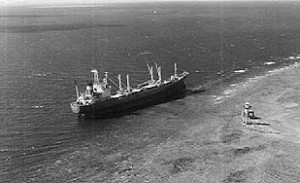General average
Often measures taken in response to an incident have served a dual purpose, preventing pollution at the same time as saving property. It has then had to be considered whether their cost is to borne by the insurers of the property (hull and cargo underwriters) or by those who normally pay for pollution (liability insurers and the IOPC Funds).
Sometimes this question has depended on whether these costs are allowable in general average – the specialised area of law and practice which apportions incident response costs between different interested parties. This in turn generally depends on the York-Antwerp Rules – internationally recognised terms on the subject normally incorporated in contracts of carriage.
Controversies in this area among different insurance interests led to revision of the York-Antwerp Rules in 1994, when new provisions were adopted to deal with costs of measures to prevent pollution. These were to be allowed in general average in some cases but not in others.
As with many compromise solutions, the agreed formula was intricate and has sometimes been difficult to apply in practice. The complications are still greater when it is debatable which of various charterparties and bills of lading is the relevant contract of carriage. That is particularly the case when they incorporate different law and jurisdiction clauses, or different revisions of the York-Antwerp Rules.
These issues are discussed in further detail in Chapter 21 of Shipping and the Environment, which deals with issues affecting hull and cargo insurers.
Back to Incidents.

